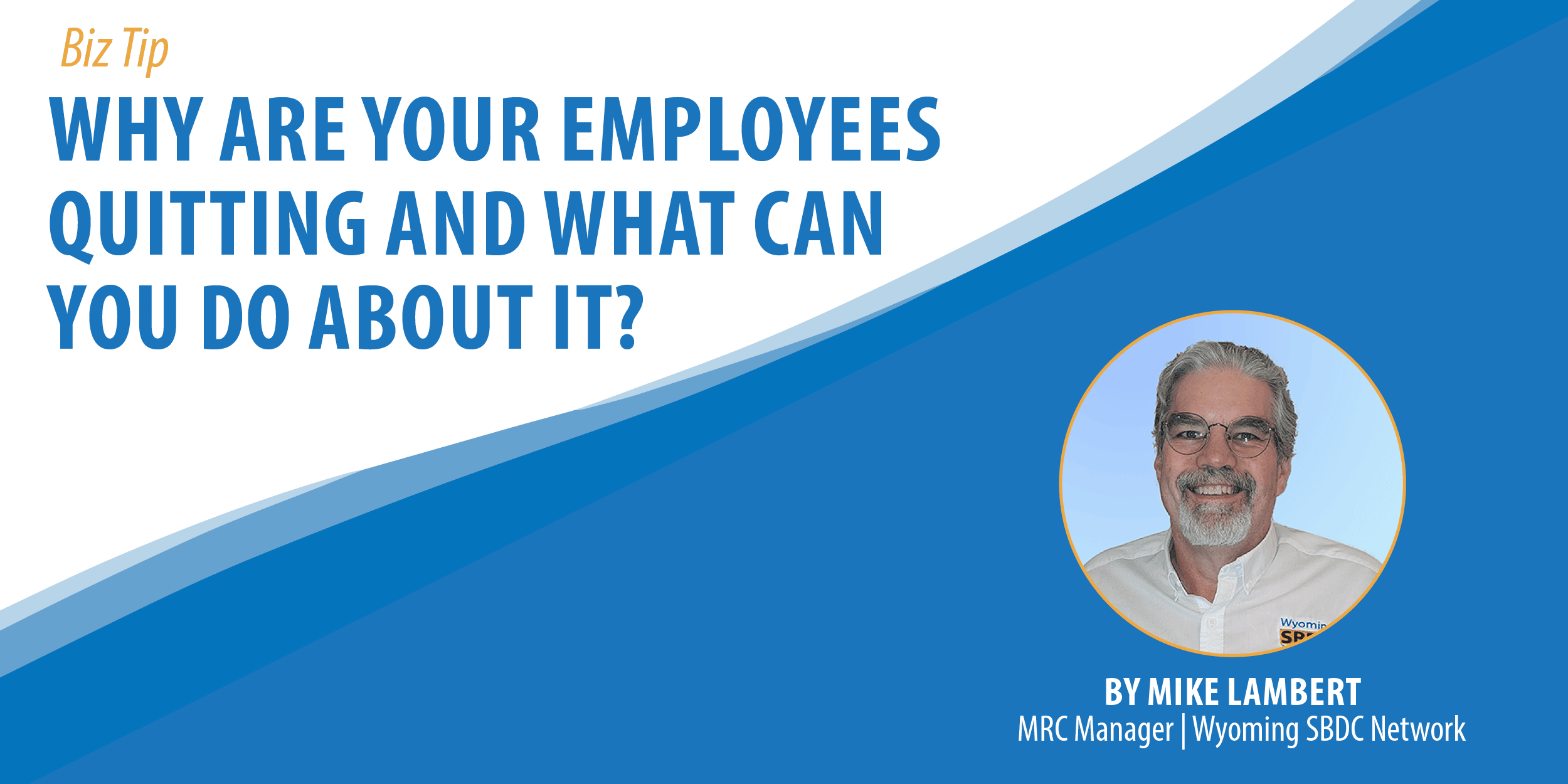Wyoming business owners are struggling to retain staff and one of the most common things I hear when speaking with clients is, “I just can’t afford to increase salaries in this economy, and my workers are leaving.” The underlying assumption is that people are quitting because they don’t feel that they are paid enough. It’s true that employees need to have a reasonable and competitive salary, but salary alone won’t guarantee engaged and loyal employees in the post-pandemic workplace.
So, what’s the secret to retaining staff? Business managers and leaders will need to break the old model of, “I’m the boss, so do what I tell you.’ After decades of feeling that they are easily replaced cogs in an uncaring machine, the employees of today now realize that if the company doesn’t care about them, they don’t need to care about the company.
This has been coming for some time, but the stresses of the COVID-19 pandemic have brought it to the top of everyone’s mind. Now, what can business owners do to take action?
In a recent article published by empuls, a guest contributor offered 9 Ways to Improve Employee Loyalty in 2022. I’ve selected the six I think are the most important and the reasons why I think they are key or how to attain them:
- Encourage communication and feedback and follow up with action.
Think back on your career, if your boss made you feel unimportant, never wanted to hear suggestions, or made giving feedback a one-way street, was that a place you wanted to stay, or were you always looking or wishing for something better? Engaged and effective employees want and deserve great communication and feedback.
- Praise good performance and show gratitude.
When was the last time you thanked your employees? Here’s a hint – if you haven’t found something to praise then you probably aren’t looking. If you don’t let people know they are doing a good job, they’ll look for one where they feel valued.
- If a problem arises, solve it as quickly as possible, and involve the affected employees.
Hold up your hand if you’ve never had a problem in your business. If we were all together in a room right now, I don’t think we would see a single hand pop up. Problems happen but how you solve them will be a great indicator of how successful your business will be and whether your employees will stay with your business. Plus, more minds on a problem generally mean you will come to better solutions!
- Be flexible about defining work.
Workers today have become used to having a higher degree of flexibility in the workplace. Every business is different but think carefully about ways you can help your employees juggle their personal and work commitments. If you can offer some work at home or schedule flexibility employees will notice. Jobs with no flexibility will tend to be a revolving door as people leave for greener pastures.
- Invest in training and development.
Want to keep your top performers? Professional development and training will help. Look for ways to help your employees improve their skills. Both your employees and the company will benefit.
- Offer fair compensation and incentives.
Salary and benefits are important. If an employee knows that they are being underpaid, they won’t stay. However, it doesn’t have to be just salary. You can offer personal days, or other incentives or perks to make their compensation a little more enticing.
The most challenging and rewarding job a manager has is ensuring that your employees are engaged and that they feel their workplace is a place they want to be and not a temporary solution until something better comes along.
If you are struggling to keep employees or hire new employees, give your Wyoming SBDC Network advisor a call today. They can help you work through employee retention strategies that will work for your business and your staff.
About the Author: Since 2003, Mike has built an information resource for Wyoming businesses that is unique in the nation. The Wyoming SBDC Network’s Market Research Center specializes in providing any Wyoming business with access to advanced marketing information that was previously available only to a few of the largest corporations. Mike’s individual expertise also includes marketing, product management, product development, international trade, and exporting.






